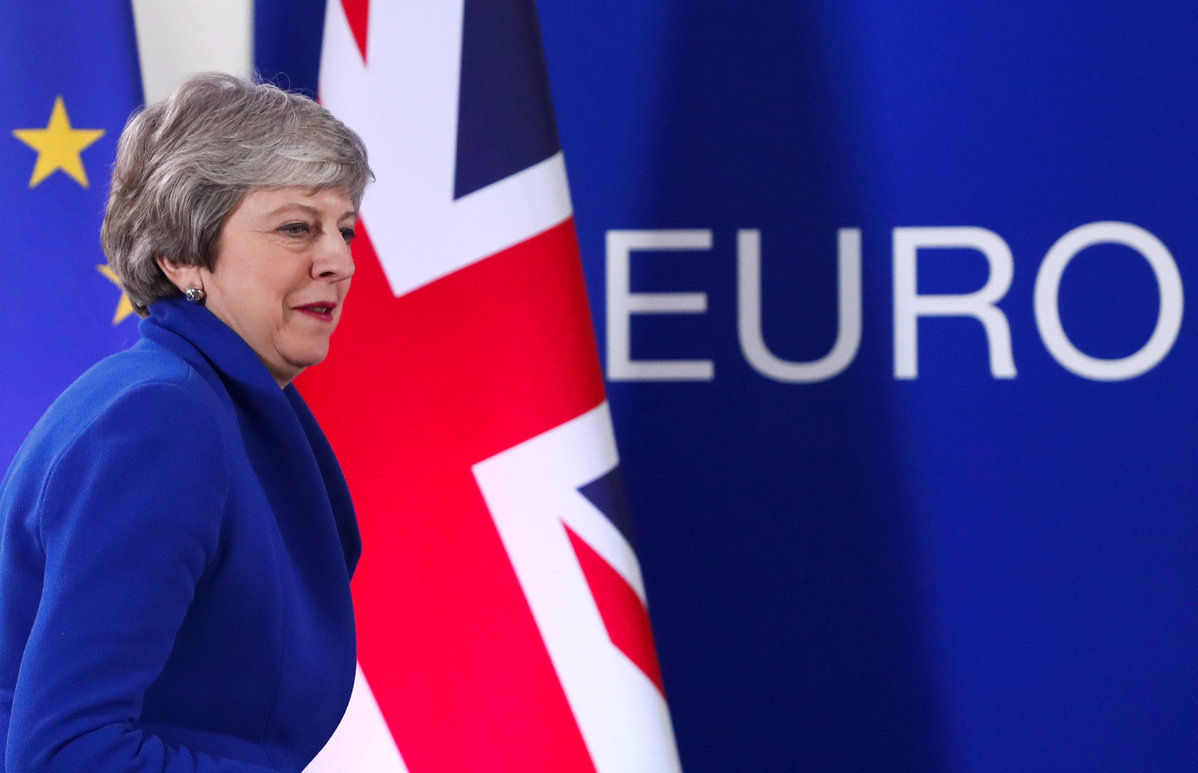EU delays Brexit departure until Oct 31
By Earle Gale | China Daily | Updated: 2019-04-12 05:26

United Kingdom Prime Minister Theresa May gained some valuable Brexit breathing room this week when European Union leaders granted her request to move the goal posts and push the nation's planned exit from the bloc back to Oct 31.
Before the deferral, which got the green light at a five-hour summit on Wednesday, the clock was counting down to a planned exit on Friday, and British politicians were deadlocked on the kind of divorce deal they wanted — a close, soft Brexit or an arm's-length hard Brexit. The stalemate meant the UK was set to crash out without a deal, something the business community had said would be disastrous for the economy.
The delay gives May more time to get a withdrawal deal approved by the UK's bitterly divided Parliament.
Donald Tusk, president of the European Council, urged his "British friends" not to "waste this time".
May said she still hopes to get the withdrawal deal she negotiated with the EU in November past Parliament, despite it having been defeated three times.
"I know that there is huge frustration from many people that I had to request this extension," she said. "The UK should have left the EU by now, and I sincerely regret the fact that I have not yet been able to persuade Parliament to approve a deal."
She said there is no "simple way to break the deadlock in Parliament".
"But we have a duty as politicians to find a way to fulfill the democratic decision of the referendum, deliver Brexit, and move our country forward."
May had favored a shorter delay, in part to assuage hard-line Brexiteers in her Conservative Party who are desperate to leave as soon as possible. The BBC's political editor, Laura Kuenssberg, said the longer delay could trigger a leadership challenge and, potentially, a new prime minister by June.
Former Brexit secretary David Davis said on Radio 4's Today program it is "difficult to see how" May will get her deal through Parliament and that the "pressure on her to go will increase dramatically now".
The uncertainty around if, when, and how the UK will leave the EU has led to 400,000 EU nationals applying for settled status in the UK.
The Guardian newspaper said on Thursday that interest had accelerated quickly after the program went live at the end of March, prompting Sajid Javid, the UK home secretary, to announce the government is setting aside an additional 9 million pounds ($11.79 million) to help people make applications so they can continue living and working in the UK, something the government estimates is an option for around 4 million people.
But while EU citizens appear to be getting on top of the paperwork, the same cannot be said for many British companies. A Financial Times survey found less than one-third of British companies that trade exclusively in the EU have filled out the paperwork needed to carry on doing so in the event of a no-deal Brexit.
























